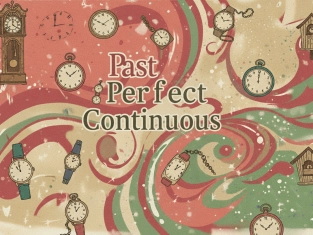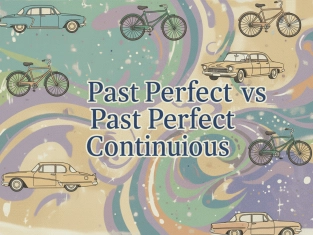Past Simple vs Past Perfect
Table of Contents
Exercises
Explanation
1. Past Simple – Form and Use
Form
-
Affirmative: subject + V2
-
Negative: subject + did not (didn’t) + V1
-
Questions: Did + subject + V1?
We use Past Simple for actions that happened once, finished, and have a clear time in the past.
Examples
-
She visited her grandparents last weekend.
-
We didn’t watch the game yesterday.
-
Did he finish the project on Monday?
Time markers
yesterday, last month, in 2019, two hours ago, last night
2. Past Perfect – Form and Use
Form
-
Affirmative: subject + had + V3
-
Negative: subject + had not (hadn’t) + V3
-
Questions: Had + subject + V3?
We use Past Perfect to show that one action happened earlier than another past action. It helps show sequence and makes the order of events clearer.
Examples
-
I had finished my book before the class started.
-
They hadn’t visited the museum before their trip to Paris.
-
Had you eaten anything before you arrived?
Time markers
before, after, already, just, by the time, earlier
3. Comparing the Two Tenses
|
Feature |
Past Simple |
Past Perfect |
|
Meaning |
A finished past action |
A past action that happened before another past event |
|
Form |
V2 / didn’t + V1 / Did + V1 |
had + V3 / hadn’t + V3 / Had + V3 |
|
Time markers |
yesterday, last week, ago |
before, already, by the time, after |
|
Example |
I booked the tickets. |
I had booked the tickets before she called. |
More examples
-
Past Simple: Emma arrived late.
-
Past Perfect: Emma had lost her keys, so she arrived late.
-
Past Simple: He fell asleep.
-
Past Perfect: He had worked all day, so he fell asleep quickly.
4. How to Decide: Past Simple or Past Perfect?
Ask yourself:
-
Are there two actions in the past?
-
Did one action happen earlier?
-
Earlier action → Past Perfect
-
Later action → Past Simple
Example:
When we got to the park, the movie had already started.
(= the movie started first)
5. Can Past Perfect appear without a second action?
Yes - if the context makes the meaning clear.
-
She was tired because she had slept only three hours.
-
He was excited because he had never travelled abroad.

